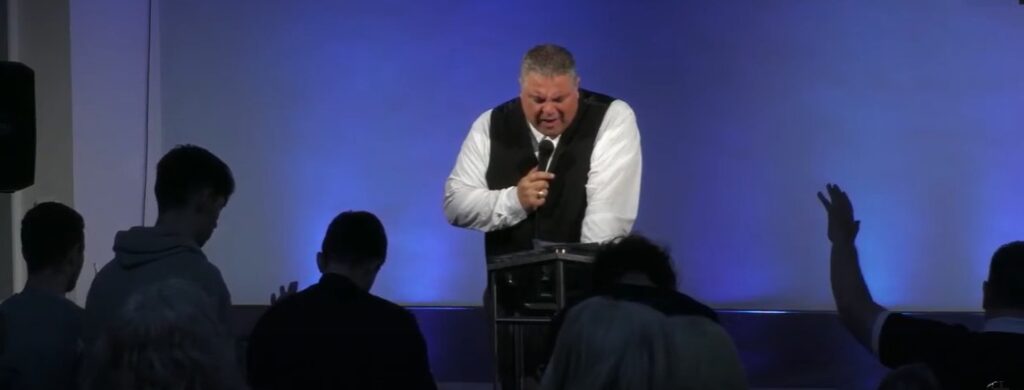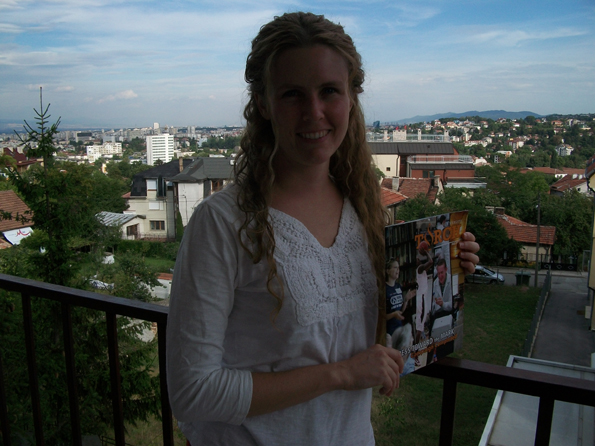Theological Reflections on Dubai as a Modern-Day Babylon: An Analysis of Prophetic Parallels
Theological Reflections on Dubai as a Modern-Day Babylon: An Analysis of Prophetic Parallels
I present this discussion to address an intriguing observation that has surfaced after over two decades of preaching on eschatological signs around the world. While I have delivered messages on the potential parallels between biblical prophecy and contemporary developments, including the rise of Dubai as a possible modern-day iteration of Babylon, I find that there is an absence of an English-language recording encapsulating these ideas. Although materials exist in Bulgarian and other languages, their accessibility requires translation—a process akin to the biblical “gift of interpretation of tongues” (1 Corinthians 12:10). Today, I endeavor to provide a concise analysis of how biblical prophetic frameworks align with the socio-economic and cultural developments in Dubai, with a particular focus on its potential typological significance as a restored Babylonian empire.
The 10-Nation Confederation and Its Eschatological Implications
To begin, we observe the existence of the Organization of Arab Petroleum Exporting Countries (OAPEC), a 10-nation consortium that includes Algeria, Bahrain, Egypt, Iraq, Kuwait, Libya, Qatar, Saudi Arabia, Syria, and the United Arab Emirates (UAE). The composition of this organization is noteworthy for its shared Islamic identity, which imbues its geopolitical actions with apocalyptic undertones, as noted by Esposito (1999) in The Islamic Threat: Myth or Reality?. Within Islamic eschatology, the concept of the Mahdi, a messianic figure, plays a central role, and population growth is often viewed as a religious imperative to strengthen the Muslim world’s global influence (Nasr, 2007). This shared worldview situates the Middle East, and particularly Dubai, as a focal point in contemporary discussions of global power shifts.
Economic and Cultural Hegemony of Dubai
Dubai, strategically located across the Persian Gulf from Iraq, resonates with the ancient descriptions of Babylon as a center of wealth, trade, and cultural exchange. Scholars such as Oster (2017) have highlighted that ancient Babylon was not merely a geographic entity but a symbol of hubristic human ambition and economic dominance, themes that echo in the modern emirate’s meteoric rise. Dubai hosts over 25 million tourists annually and boasts one of the largest airports in the world, positioning itself as the “tourism capital of the world” (UNWTO, 2023). Additionally, Dubai’s multicultural fabric, where representatives from virtually every nation, language, and religion coexist, aligns with the biblical depiction of Babylon as a cosmopolitan hub (Revelation 17:15).
Economically, Dubai’s influence extends far beyond its borders. It controls over 30% of the NASDAQ technical index, reflecting its significant role in global financial markets (Jones, 2022). The construction of man-made islands, such as Palm Jumeirah and “The World,” symbolizes both its technological prowess and its aspiration to reshape the natural world—a characteristic often attributed to ancient Babylon’s monumental architecture (Finkel, 2013).
Biblical and Historical Comparisons
Theologically, parallels between Dubai and ancient Babylon can be drawn from the narrative of the Tower of Babel in Genesis 11. The construction of the Tower was motivated by human vanity and a desire to “make a name for ourselves” (Genesis 11:4, NIV), a sentiment that mirrors Dubai’s rapid urbanization and global branding efforts. Furthermore, the Etemenanki ziggurat in Babylon, dedicated to the god Marduk, served as a “temple of the foundation of heaven and earth” (George, 1992). Similarly, Dubai’s architectural marvels, such as the Burj Khalifa—the tallest building in the world—serve as modern testaments to human ambition and ingenuity, echoing ancient aspirations to connect the terrestrial with the divine.
From a historical perspective, the Tower of Babel was constructed after the biblical flood (Genesis 6-9), ostensibly as a safeguard against future cataclysms. This raises the question: Is Dubai, with its advanced infrastructure and resilience to climate change, similarly positioned as a haven against potential global crises? While speculative, this analogy invites further exploration through interdisciplinary studies of theology, urban planning, and environmental sustainability.
Eschatological Considerations and Future Directions
Critics argue that comparisons between Dubai and Babylon lack theological significance. However, an examination of the facts reveals compelling parallels. Scholars such as Beale (1999) have emphasized the symbolic role of Babylon in biblical prophecy, representing human rebellion against divine authority and the concentration of power, wealth, and corruption. Dubai’s emergence as a dominant force in the global economy and culture invites reflection on whether it fulfills a similar archetype in contemporary times.
Finally, the rise of new economic alliances, such as BRICS and the shift toward alternative currencies for oil trade, further underscores the Middle East’s centrality in shaping global geopolitics (Shah, 2023). As the region continues to evolve, the potential for a unified Arab political and economic bloc reminiscent of ancient Babylon remains a topic of significant scholarly interest.
Conclusion
In conclusion, while Dubai is not a direct geographical or historical successor to Babylon, its symbolic resonance with the ancient city is undeniable. The intersection of biblical prophecy, economic power, and cultural diversity renders Dubai a compelling case study for understanding the eschatological dynamics of the modern world. As history unfolds, it remains to be seen whether Dubai will further solidify its role as a modern Babylon, embodying the themes of ambition, globalization, and apocalyptic anticipation that have captured the human imagination for millennia.
Reflections on a 200-day Revival

- Creative developing of fasting, prayer and giving of alms, all commanded by Jesus Himself as a regular expression of our faith (Gr. оταν = when you pray, fast, give), is the prerequisite for every Spirit-led revival. On the third day of our 10-day fasting, God used a child to revive our dead Volvo, which no mechanic in a radius of 200 miles could crank for over 6 months.
- The church that forced-left the building during the pandemic, has now returned to multimillion-dollar buildings where God did not choose to start a 200-day Revival. And even when He did, the move was shut down for lack of parking space or nightly supervision. In all actuality, a church building is a result of a revival, its finish and its end. An association with a place, address or location is a sign of its centralized settlement. It was the forced getting-out of a church building (as in Acts 7) that caused the Great Azusa Revival to emerge as a grass-root movement engraved in the streets of LA.
- Revival must emerge from the Desire and Will of God in order to be supernaturally visited by the Power of His Glory! It cannot be approached as a man-made multiplication initiative, be it local, national or globally dimensioned. It is not a project to involve people, but a spiritual tsunami of power, authority and anointing that invites a prophetic projection of what God desires for eternity and not merely what man needs in the now.
- When the now and then align, revival sparks. When the now has lost its sight on eternity, revival is long done and gone. The remain is but a motion imitating the wave of the Spirit Who has already moved to other more receptive spiritual trenches and valleys of humbleness. It is these societal peripheries and spiritual layers that God visits first with Revival before proceeding to the center of religious life. Meaning, the Heart of God for Revival is not in a religious center. As a matter of fact, any association with external centralized governing denies God’s centrality in what the Spirit wills from His Church. A man cannot vanquish the ocean and cosmos of space!
- We can win no soul Christ has not already won at the Cross! We should not try to empty hell to fill Heaven, lest we end up in hell ourselves.
A final word to fundraisers who turn revival into a business-like know-how: Can’t buy God’s love!
On day 175 of our Revival, I drove by a building close to our ministry’s home location and it caught my eye. Newly built, large enough, specious parking, perfect location easily reachable from at least three large city regions. An ideal place to hold our large revival meetings in my human perception. Quite naturally, I stopped the car in front of the beautiful gate and began telling the Lord how great would it be to continue the revival here. My reasons were many. No need to travel hundreds of miles to just preach one time, spend the night in strange places, walk in the ankle-deep mud-covered streets of slums and ghettos just to reach a soul. They could all come here, park, gather, worship, hear the Gospel, be saved, healed and delivered. The same way we had seen already in the revival for almost 200 days in a row. My heart’s thoughts were shut down by one brief word from the Lord: I did not choose to have it THIS way…

Masters of Chaplaincy Reflections
It has taken exactly 10 years since the envisioning of the Masters of Chaplaincy Ministry in Bulgaria for its final realization in the Bulgarian national and cultural context. Through this time of struggle and anticipation, we encountered a number of difficulties as follows:
- Government difficulties on various levels within the Bulgarian administration and a direct repression from the Ministry of Justice, which was later included in the Religious Freedom report of the U.S. Department of State
- Administrative difficulties with approving the program as a legal educational process, while no legal background of chaplaincy has ever been provided in Bulgaria
- Economic difficulties with arranging location and time placement for the program, lecturers, the very much needed student scholarships and various other academic expenses
- Proper student selection through a special screening process to ensure only qualified candidates for placement within the Masters’ Program
- And of course, spiritual difficulties with the whole process of establishing chaplaincy in Bulgaria again being a definite spiritual warfare for all participants

Now that the Bulgarian Chaplaincy Program is an undeniable fact, we realize how our training was more than just a necessity for the implementation of such a great task. It was also well sufficient for a time as such.
I’m especially grateful for the role of my wife Kathryn, who was the main motivator behind the program and who stepped in at very crucial moments in the teaching process providing the complete structure of the program’s counseling module through her training from the Department of Psychology with Lee University and expertise from the Crises Counseling Center in Cleveland. My own experience as a chaplain during my CPE days at Erlanger and Siskin hospitals, as well as educational background from the Pentecostal Theological Seminary and experience with various churches and organizations as an ordained Church of God bishop, also served as tremendous support in various steps through the whole process of the program from its envisioning and foundation in 2001. We are thankful to all friends and partners in the ministry who contributed with their own expertise in the designing of the program and the educational process. And at last a final word of encouragement to all students and churches now set forth to do the ministry of chaplaincy in Bulgaria through the first Masters’ of Chaplaincy Ministry Program in the country.
Read more about chaplaincy in Bulgaria in the following HISTORY of EVENTS








